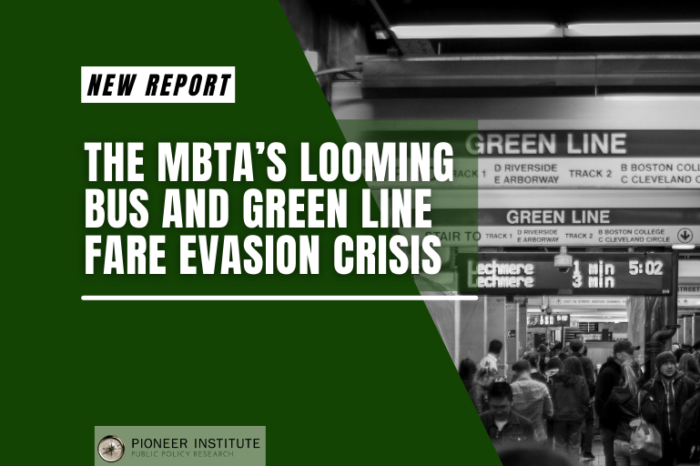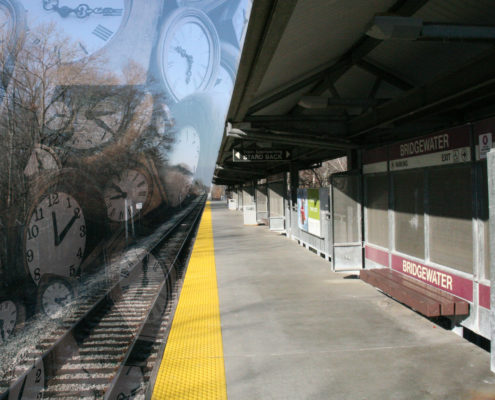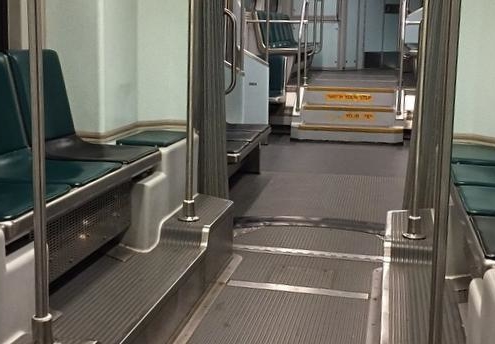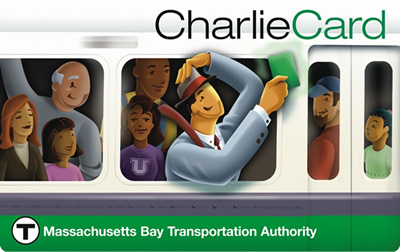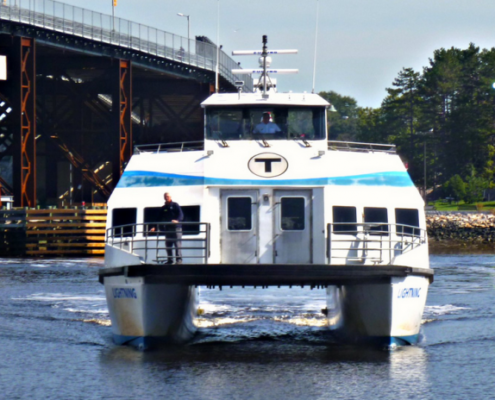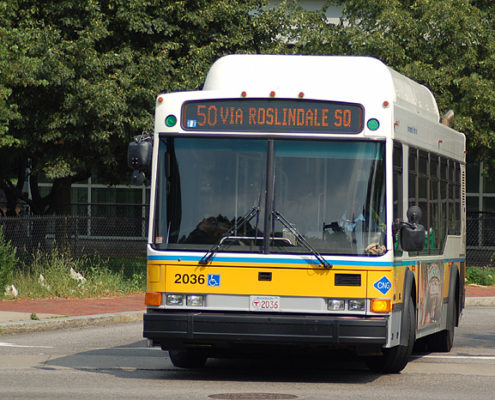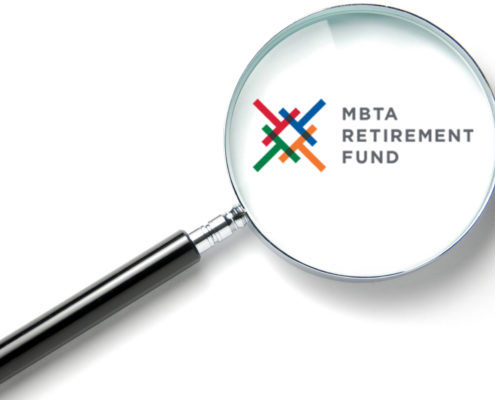Study Raises Concern That Annual T Fare Evasion Costs Could Rise By More Than $30 Million Under AFC 2.0
Rear-door Green Line and bus boarding would speed trips, but increase fare evasion
BOSTON – According to the Federal Transit Administration (FTA), the MBTA’s $935.4 million fare collection system (AFC 2.0) that is scheduled to be implemented in 2023 will reduce fare evasion by $35 million over a decade. But the T announced in 2021 that evasion could actually increase by up to $30 million under AFC 2.0, and now a Pioneer Institute study warns that insufficient fare enforcement could drive that figure even higher under the new system.
The MBTA is implementing a “tap and go” system under which riders would use account-based contactless fare cards, debit and credit cards or replenishable phone apps to tap on at an electronic pod upon boarding, and the T would hire additional staff to check tickets. AFC 2.0 will facilitate front- and rear-door boarding on the Green Line and buses, which would cut boarding and trip times.
“While faster travel times are important, the problem with the current plan is that the cost of hiring the number of enforcement staff needed to avoid rampant fare evasion would be counter-productive,” said Greg Sullivan, who co-authored “The MBTA’s Looming Bus and Green Line Fare Evasion Crisis” with Andrew Mikula.
Commuter Rail
AFC 2.0 is likely to be most effective on commuter rail because it will require passengers to tap on at a gate to access platforms and then tap off to exit North, South and Back Bay stations, where 90 percent of commuter rail trips begin or terminate.
Still, trips that begin and end in outlying stations without gated boarding areas will almost certainly see more fare evasion. Sullivan and Mikula recommend that the MBTA evaluate the cost of gating at least some higher-volume outlying stations.
Green Line
The Green Line has 13 stations in the urban core that account for 52 percent of its total boardings. At these stations, passengers must swipe at ticket gates to gain access to platforms.
At above-ground stations on the B, C, D and E branches of the Green Line, passengers currently board through the front door, where the farebox is located, during off-peak times. During busy times, passengers can also board through back doors, and the driver makes an announcement directing riders to come to the front and pay. These stations are responsible for most of the fare evasion on the line, which the T estimated at up to $4.5 million annually in 2016.
Under AFC 2.0, plans call for all-door boarding to speed travel, and an annual investment of $10-$12 million in inspectors to validate tickets.
In addition to tapping or swiping to gain entry to the platform at one of the 13 core stations, Sullivan and Mikula recommend that, as on commuter rail, riders also be required to tap off to exit the 13 stations in the urban core at the end of their trip. This would capture many of the trips that begin above ground, where fare evasion is more prevalent.
Buses
The MBTA estimates fare evasion on its bus lines to be about 1 percent of ridership, but this appears unlikely, given that fare evasion on MTA buses in New York was recently estimated to be 22 percent, Washington, D.C.’s Metrobus system was thought to be 14 percent, and it was 8 percent for the Bay Area’s BART system.
Securing station access is less realistic for the bus system than on other transit modes, since buses are so well integrated with public roadways. For this reason, some observers advocate for eliminating bus fares. Before taking that step, Sullivan and Mikula urge exploring the feasibility of implementing income-based fares, which AFC 2.0 will have the capacity to accommodate.
Potential fare evasion costs
In April 2021, General Manager Steve Poftak announced a reassessment of fare evasion projections. Rather than saving $35 million over 10 years as the project’s FTA profile claims, Poftak said fare evasion costs could potentially increase by $25-$30 million annually.
To mitigate the losses, Poftak called for a $10-$12 million investment in enforcement staff, which could reduce annual Green Line and bus fare evasion losses by $14-$22 million.
Until 2020, fare evasion fines were $100 for a first offense, $200 for a second, and $600 for each subsequent offense. Current MBTA estimates are based on fines of $50 for the first, second and third offenses, and $100 thereafter, and on two or more unpaid or unadjudicated fines triggering non-renewal of drivers’ licenses.
But after a public hearing on the proposed regulations, the Fiscal and Management Control Board (which oversaw the T until June 30, 2021 and has since been replaced by a new MBTA Board of Directors) eliminated the non-renewal provision and declined to decide on fine levels.
If, as has been proposed, fare evasion fines are reduced to $25 for the first through third offenses and $50 for subsequent offenses, the MBTA estimates that another $10-$12 million annual investment in bus and Green Line enforcement personnel would be needed. But even that level of investment would yield an inspection rate of just 5-7 percent.
If the MBTA institutes and enforces the $50 fine scenario, which would reduce the expected annual increase in fare evasion by $14-22 million from the base-case estimate of $25-$30 million, the result would still be an $8-11 million increase in losses due to fare evasion, plus an annual enforcement cost of $10-12 million. This adds up to $18-$23 million in combined revenue losses and enforcement expenses annually.
If, as the MBTA estimates, it would need to spend roughly twice as much on enforcement ($20-$24 million) with the fine set at $25, the net cost, including combined revenue losses and inspector expenses, would be $28-$35 million per year, which would exceed the T’s base-case estimate $25-$30 million in evasion losses if the MBTA instituted all-door boarding with no on-board enforcement.
About the Authors
Gregory Sullivan is Pioneer’s Research Director. Prior to joining Pioneer, Sullivan served two five-year terms as Inspector General of the Commonwealth of Massachusetts and was a 17-year member of the Massachusetts House of Representatives. Greg holds degrees from Harvard College, The Kennedy School of Public Administration, and the Sloan School at MIT.
Andrew Mikula is a former Economic Research Analyst at Pioneer Institute and current candidate for a Master’s in Urban Planning at Harvard University.
Pioneer’s mission is to develop and communicate dynamic ideas that advance prosperity and a vibrant civic life in Massachusetts and beyond. Pioneer’s vision of success is a state and nation where our people can prosper and our society thrive because we enjoy world-class options in education, healthcare, transportation and economic opportunity, and where our government is limited, accountable and transparent. Pioneer values an America where our citizenry is well-educated and willing to test our beliefs based on facts and the free exchange of ideas, and committed to liberty, personal responsibility, and free enterprise.
Get Updates on Our Transportation Research
Related Content:

